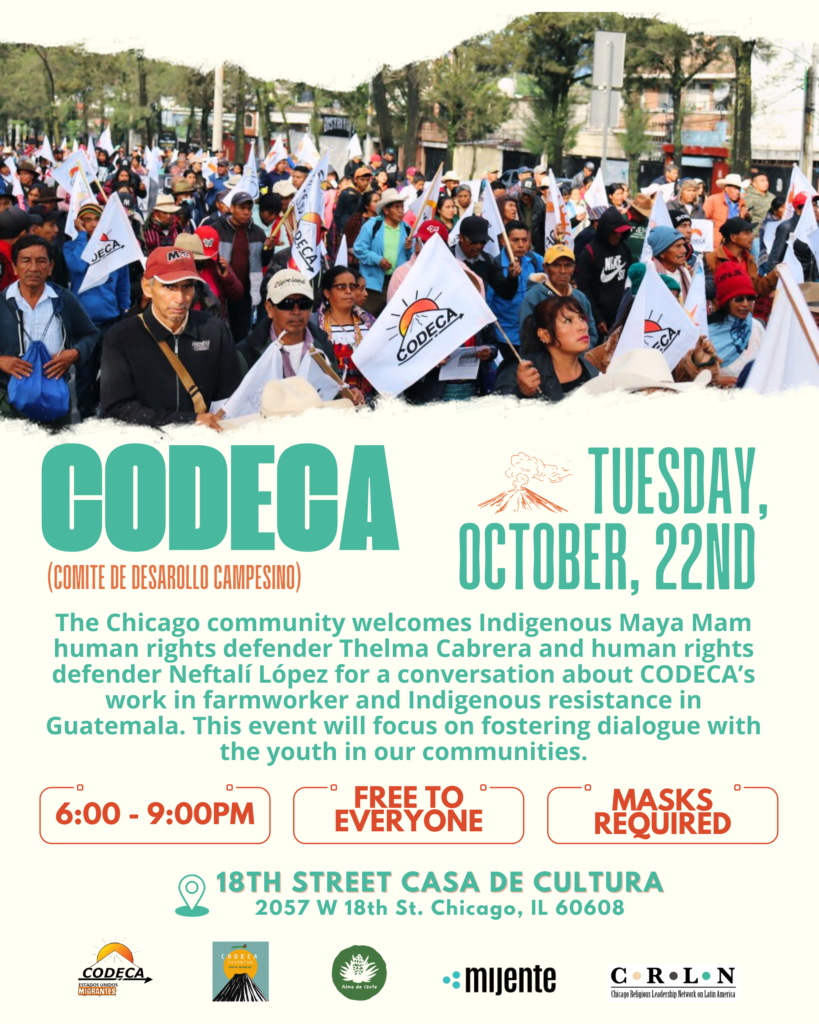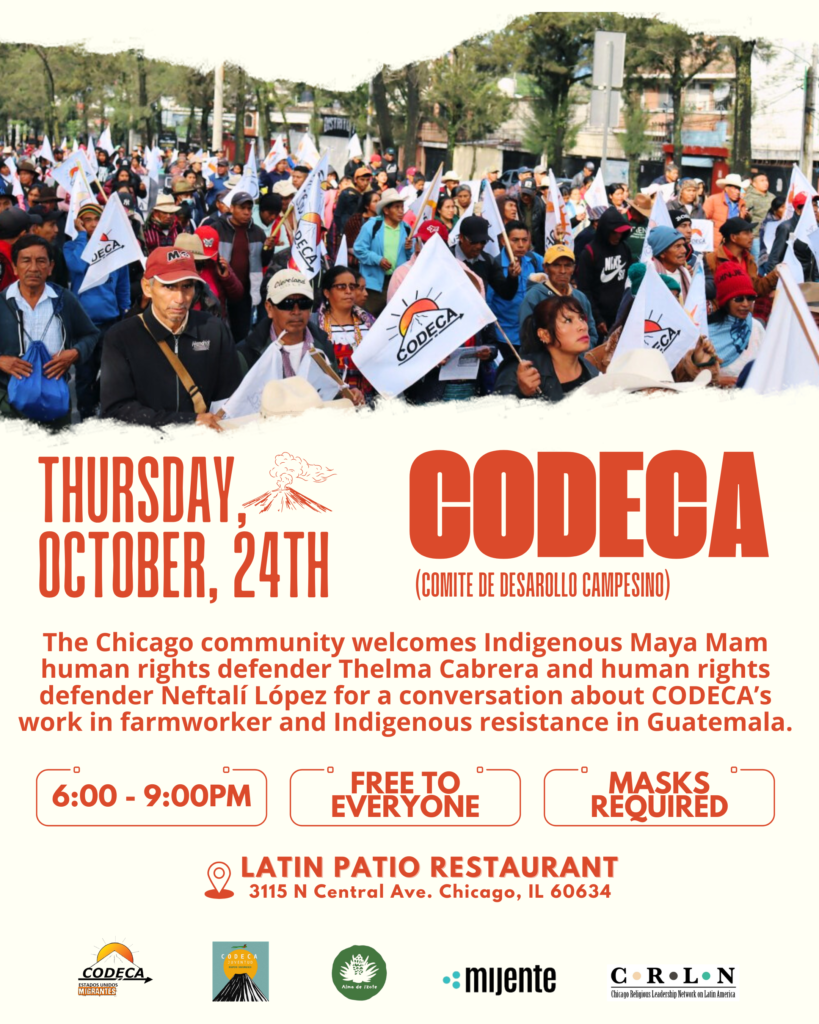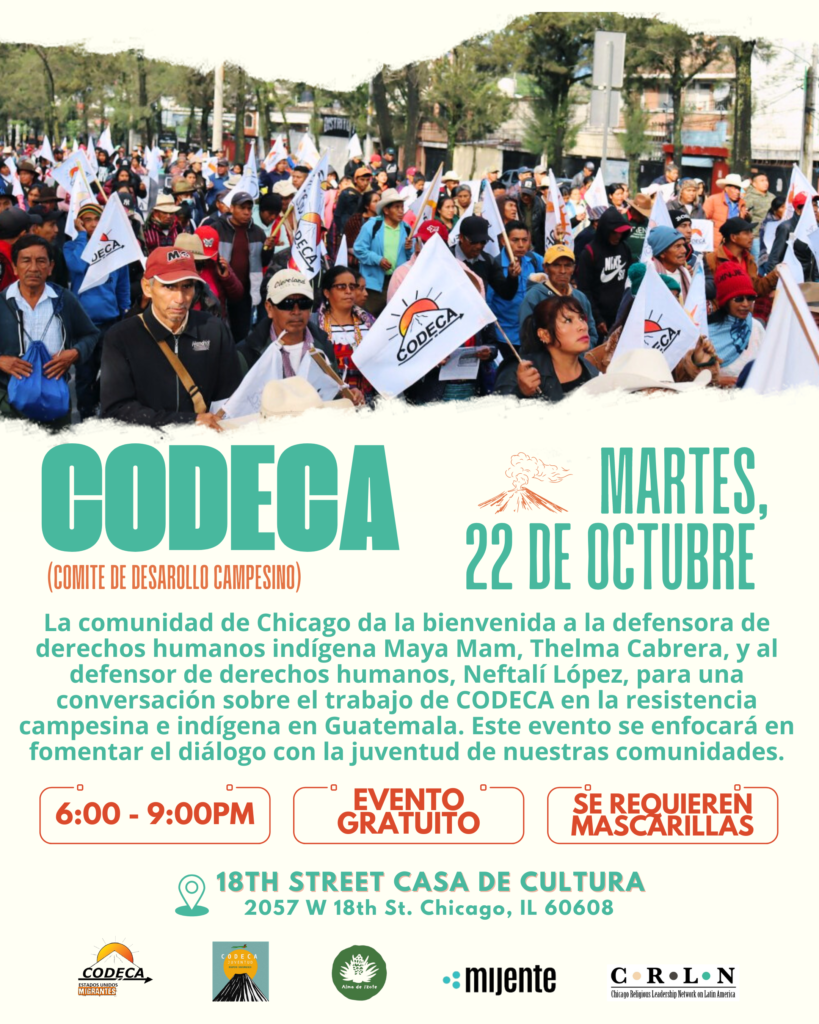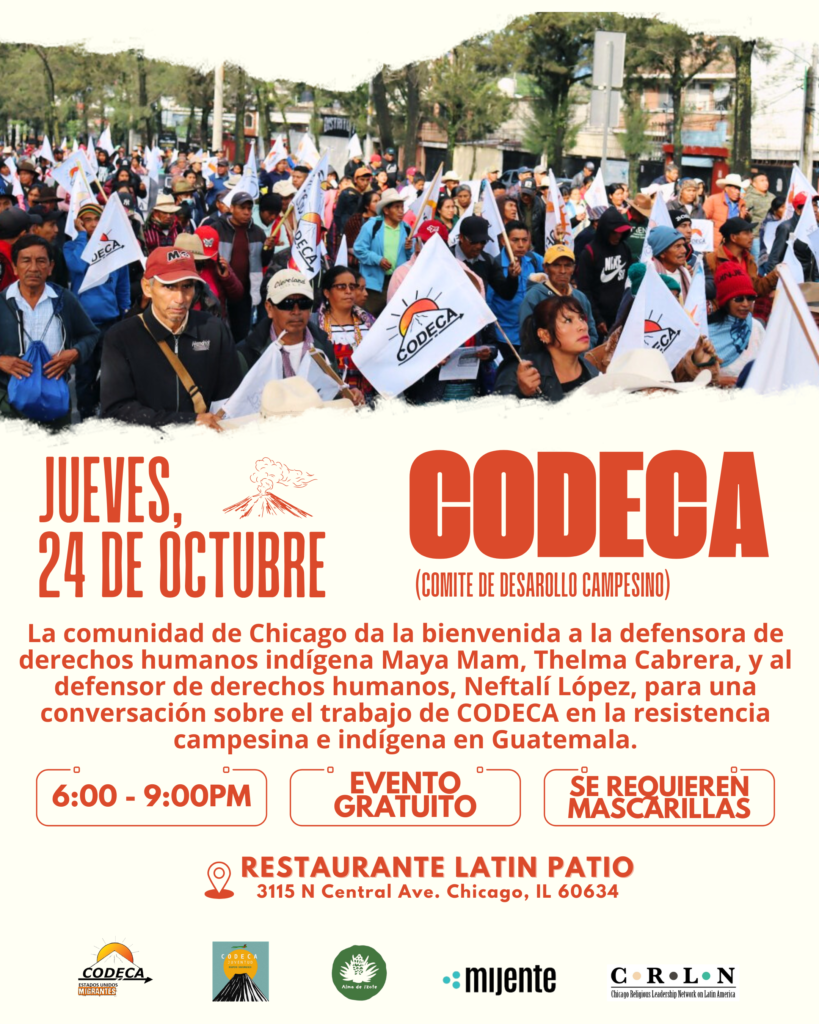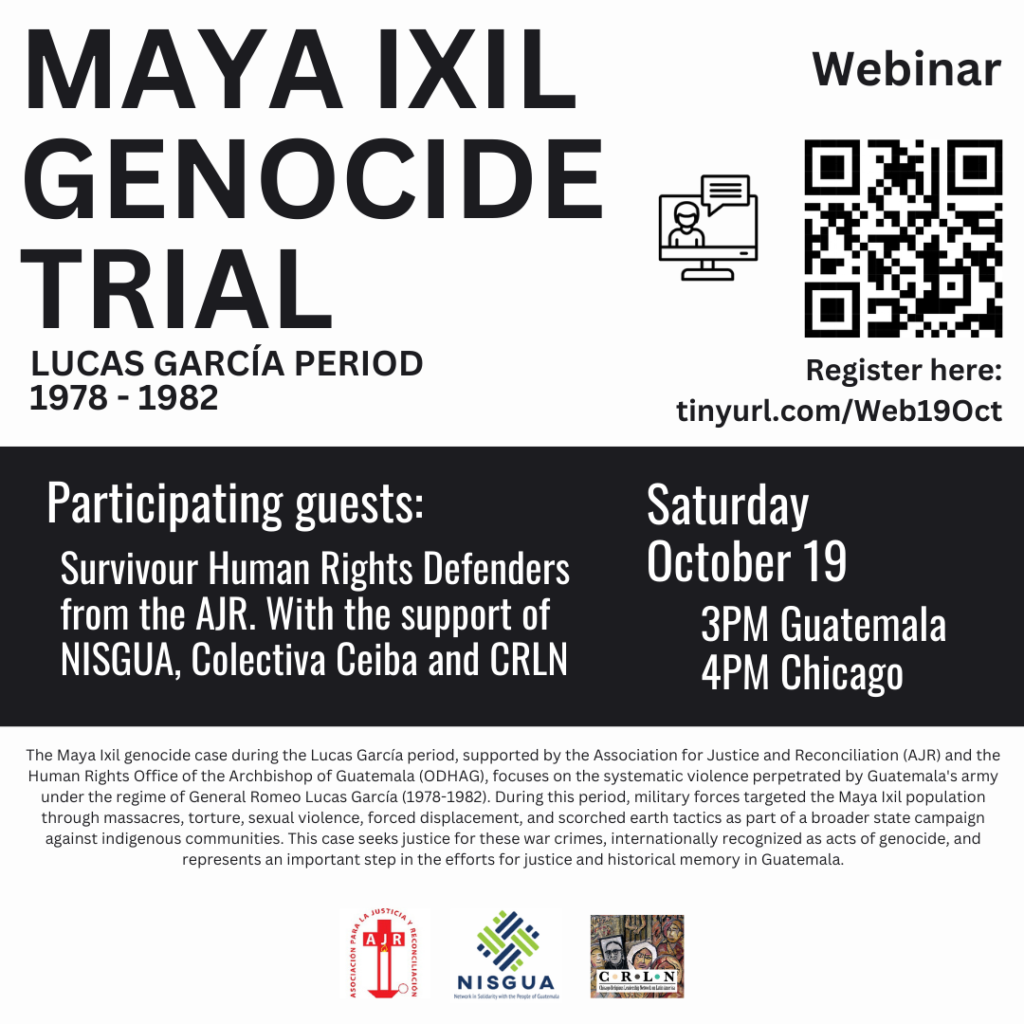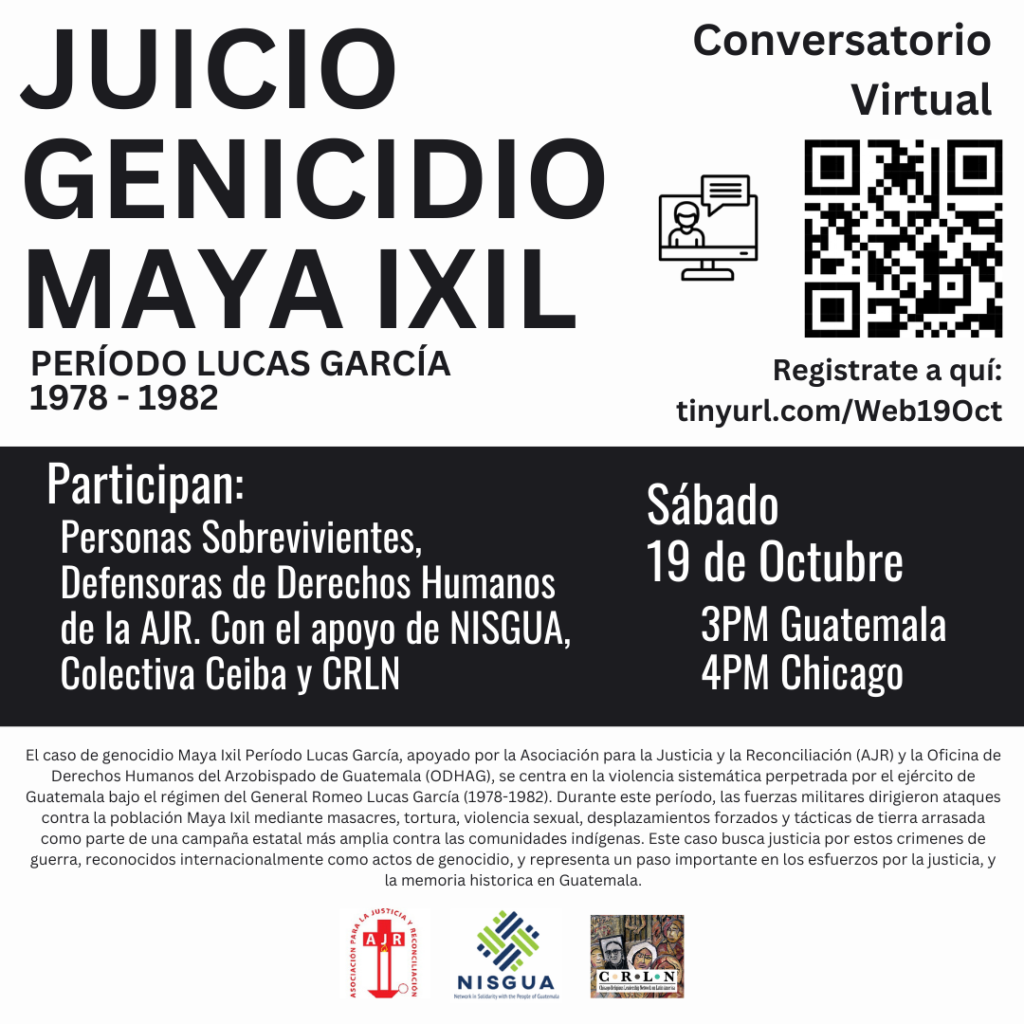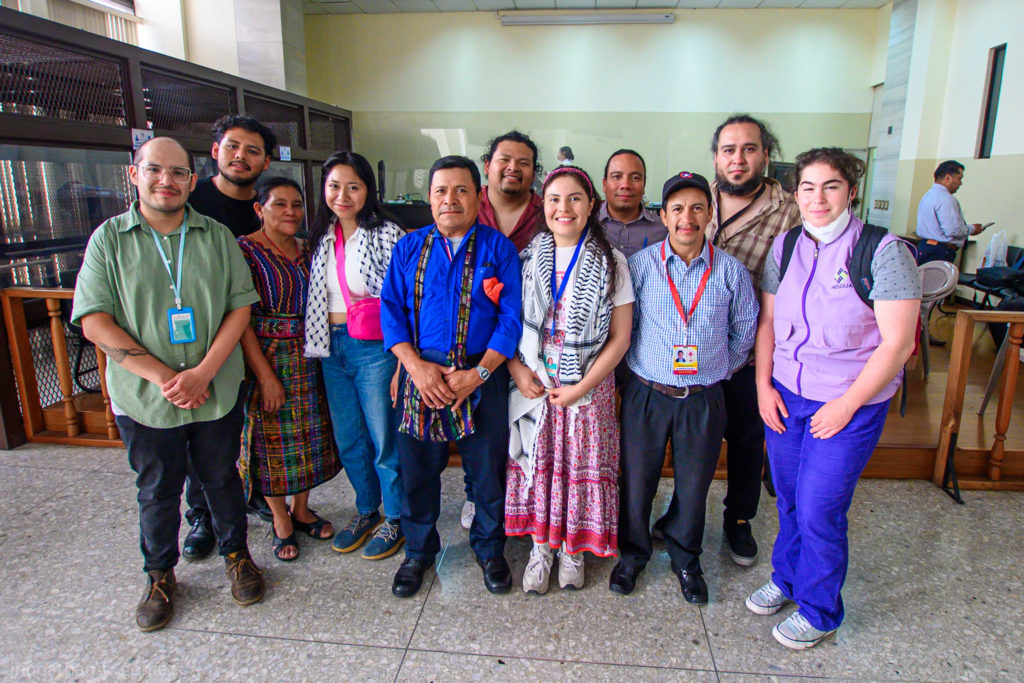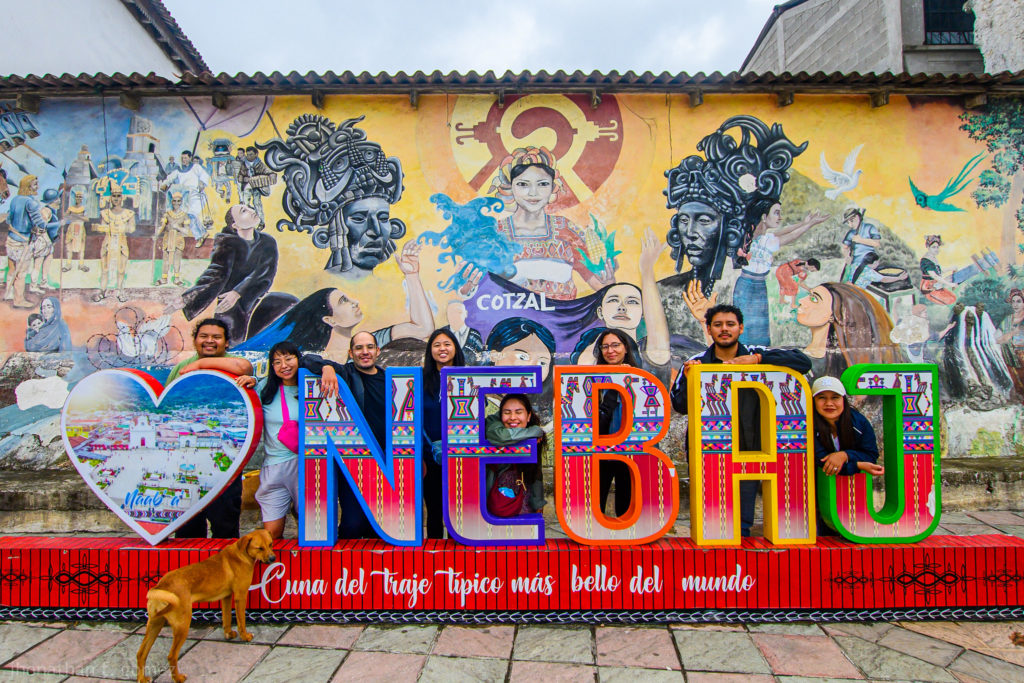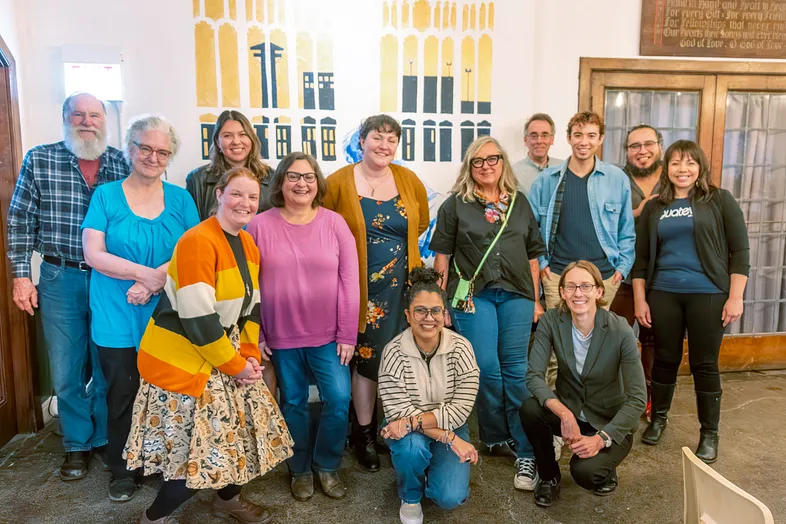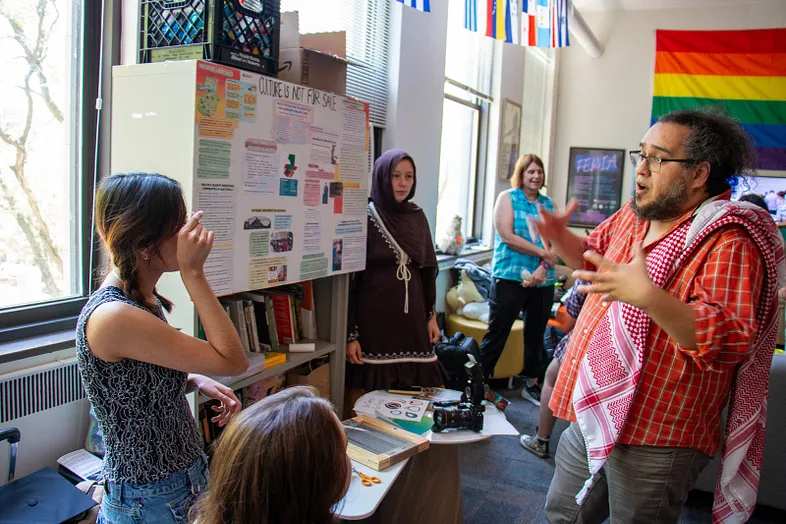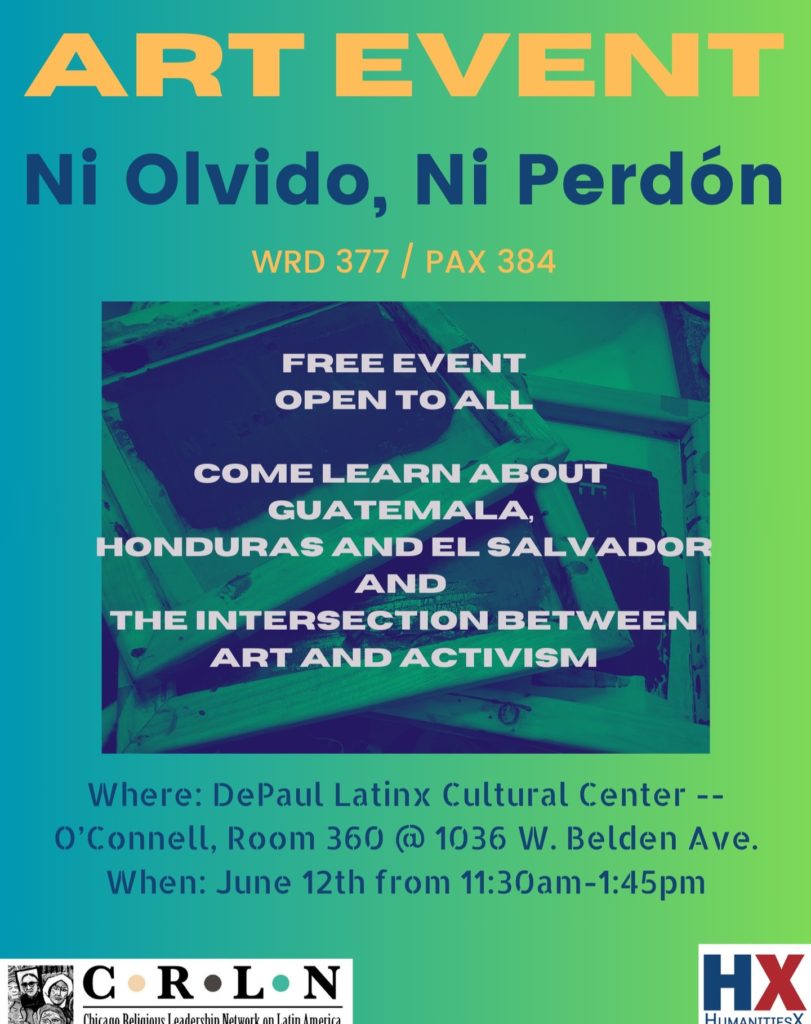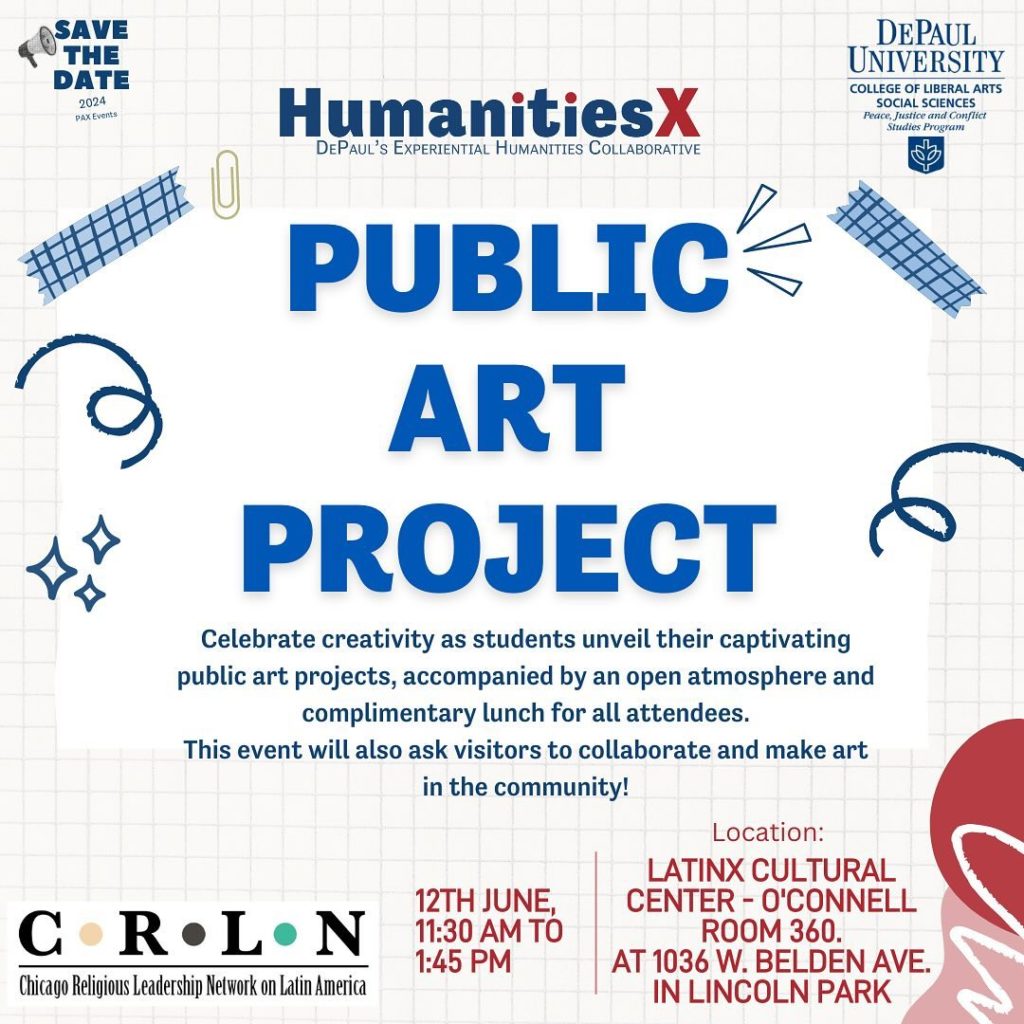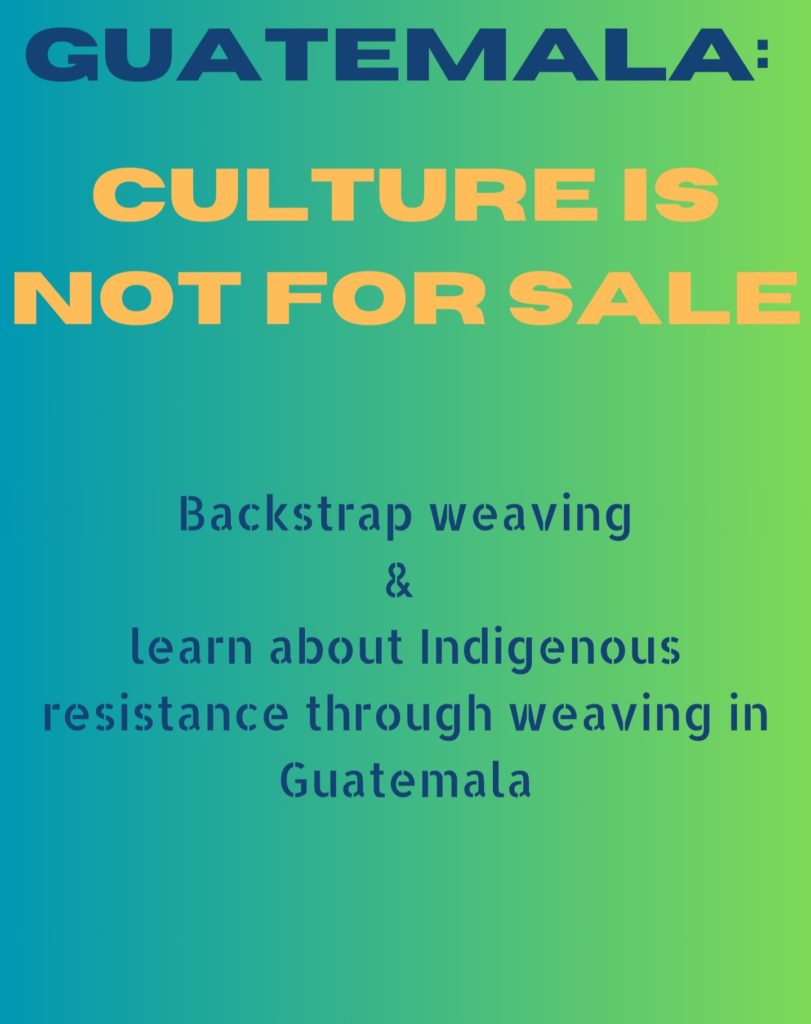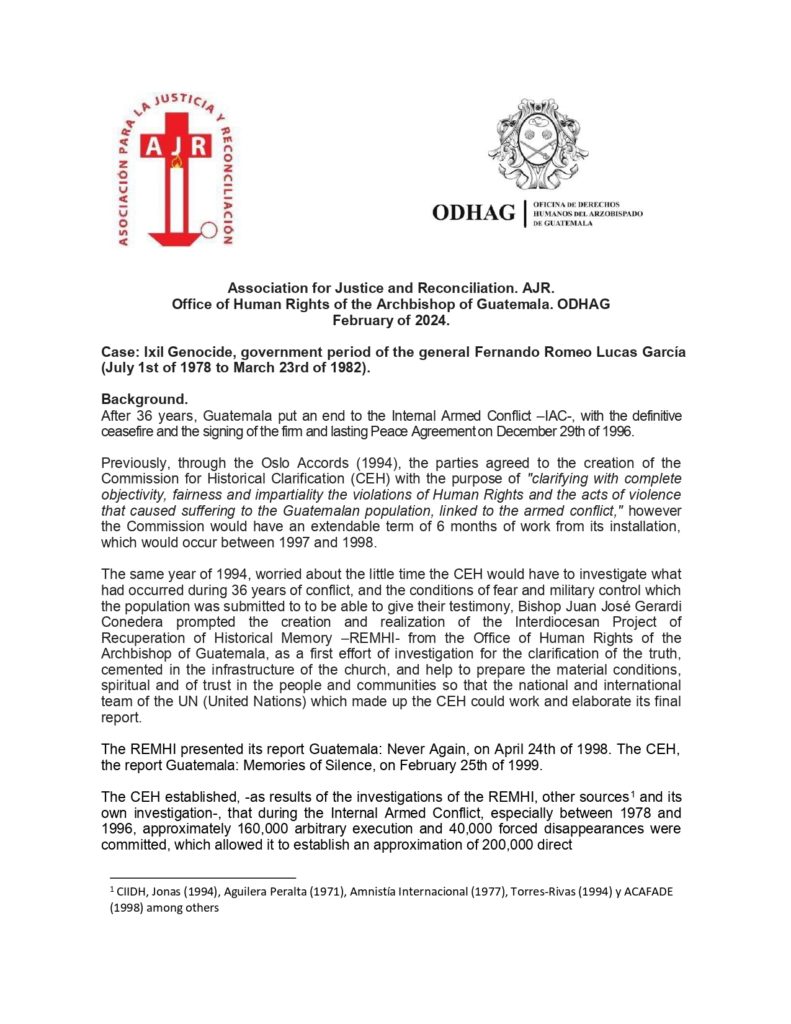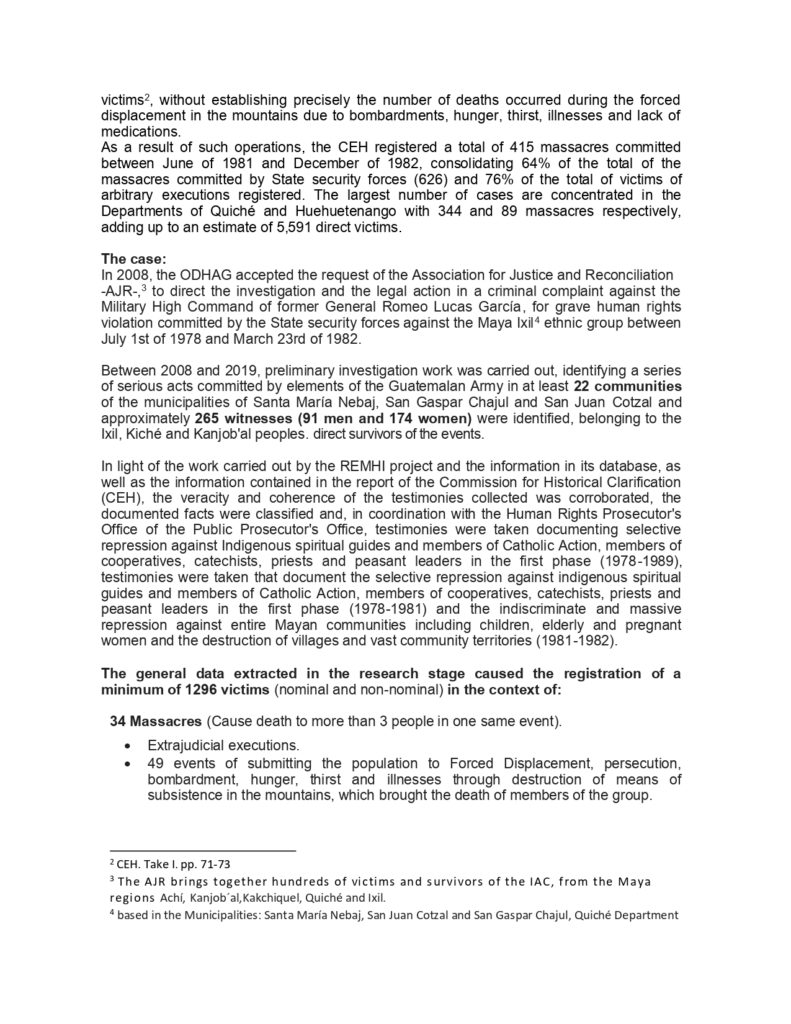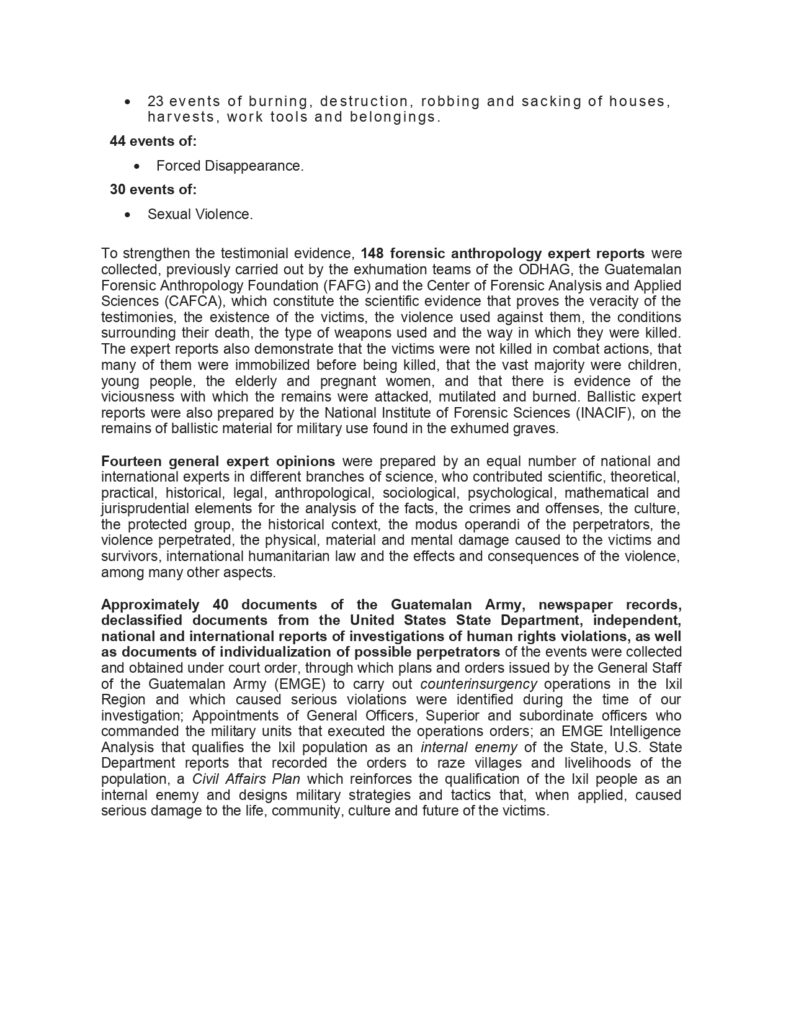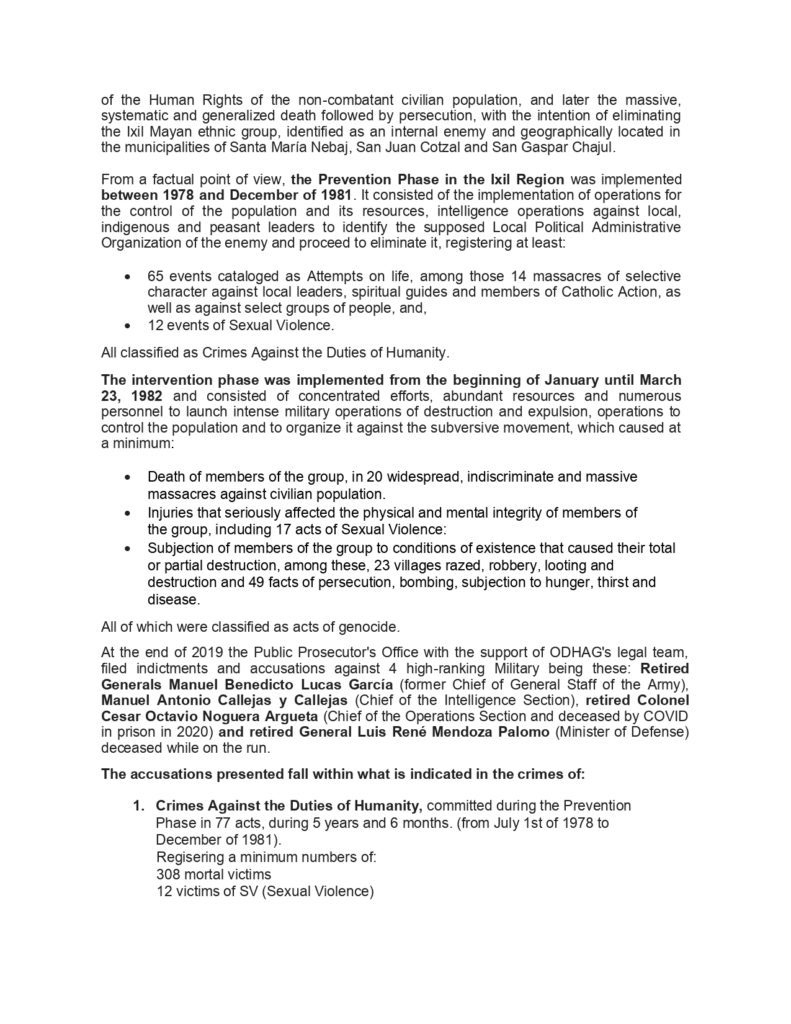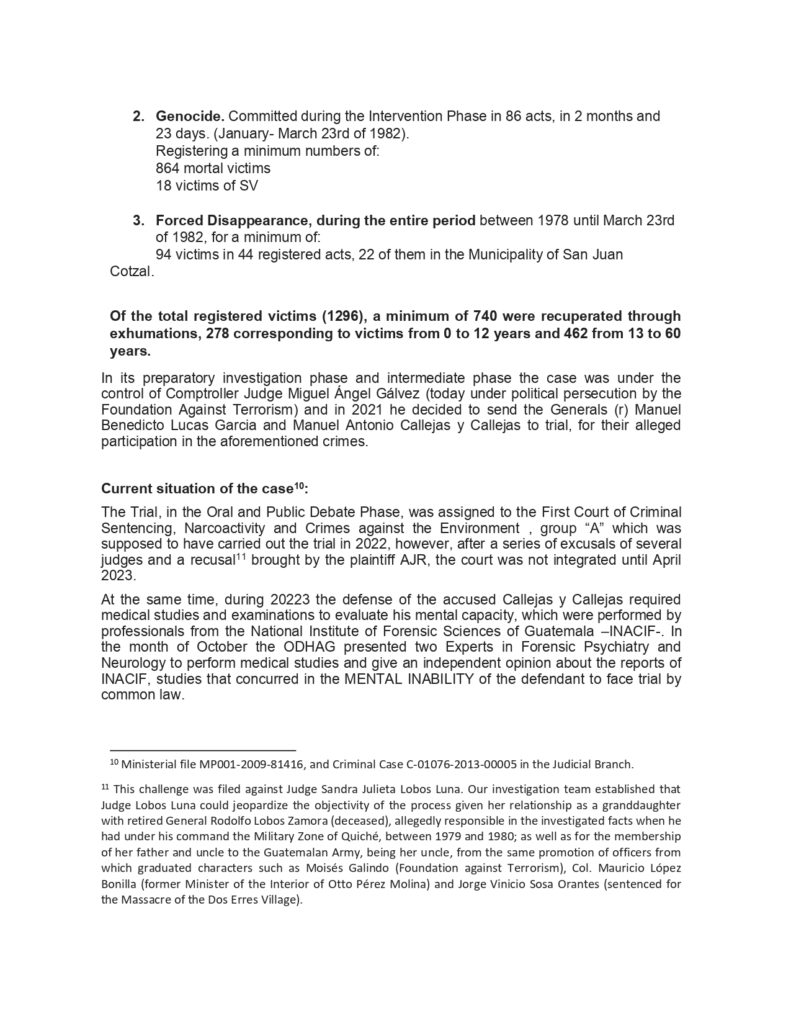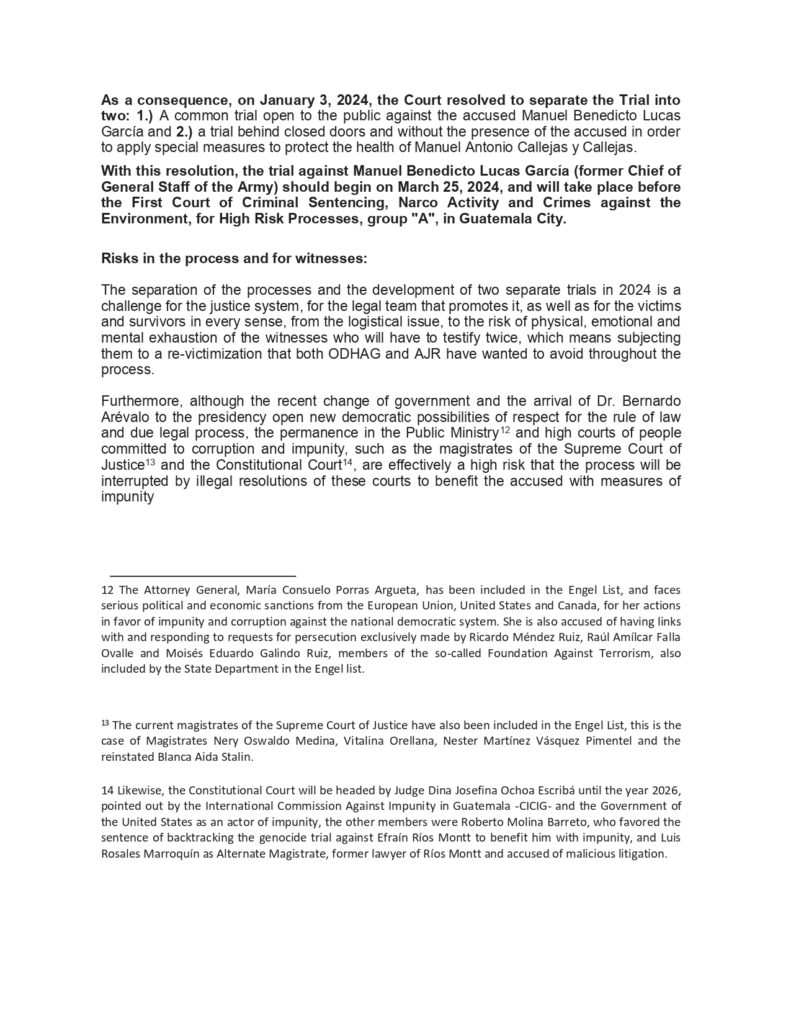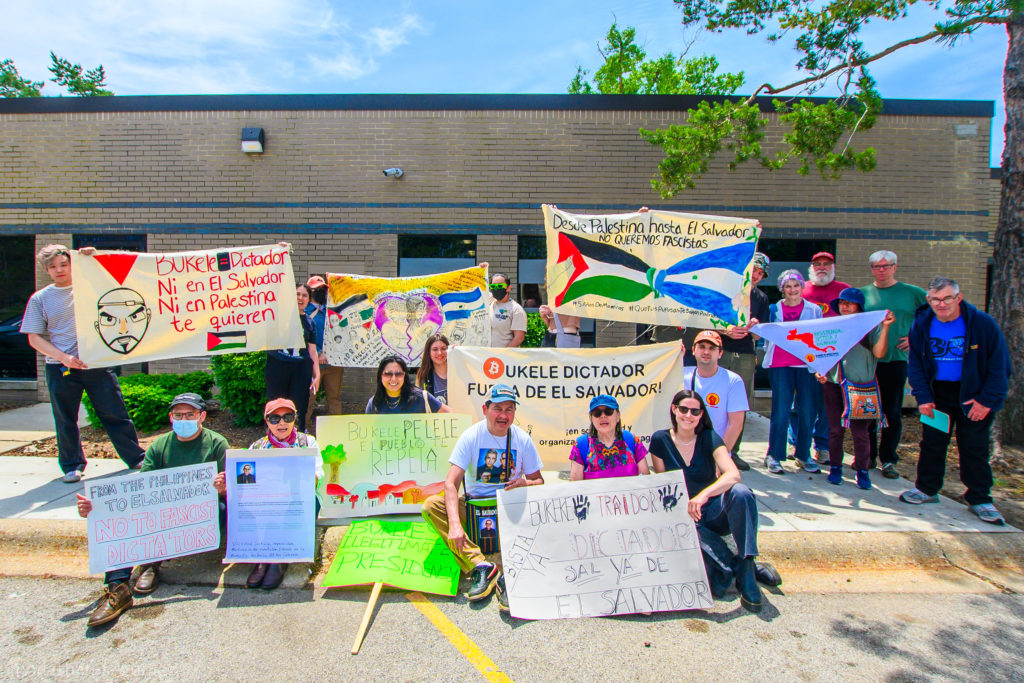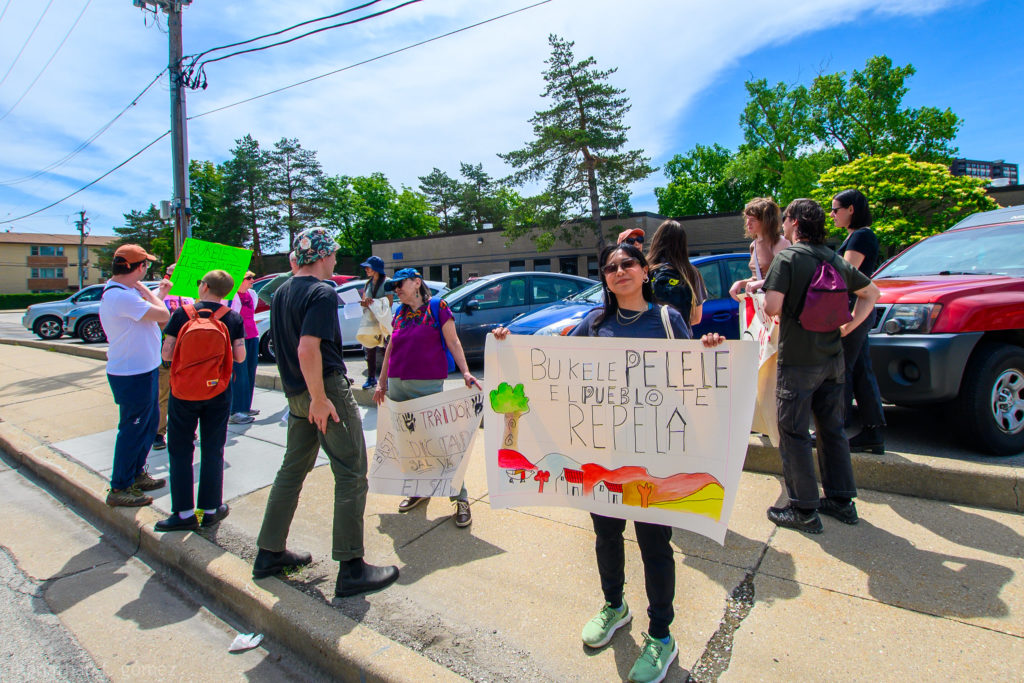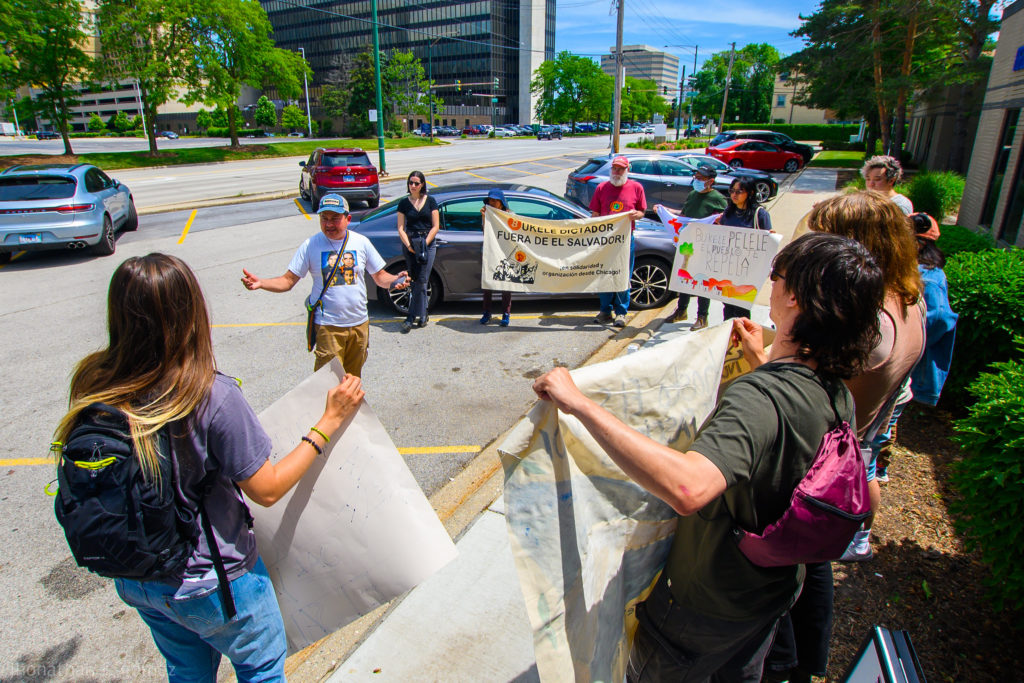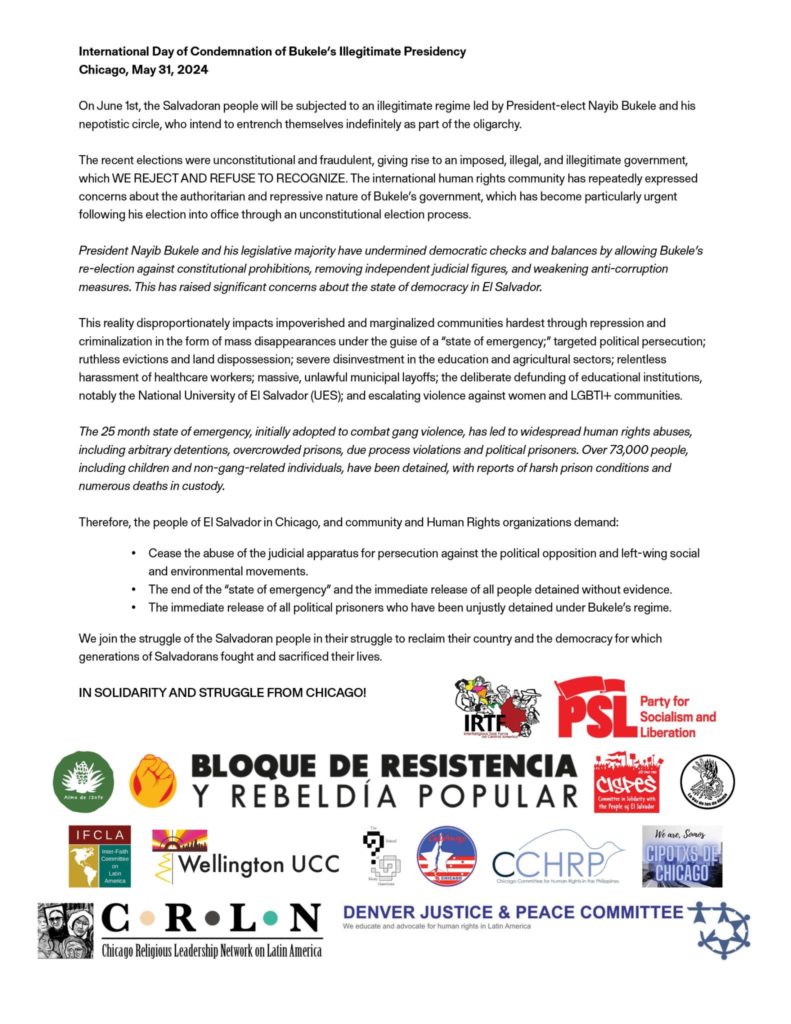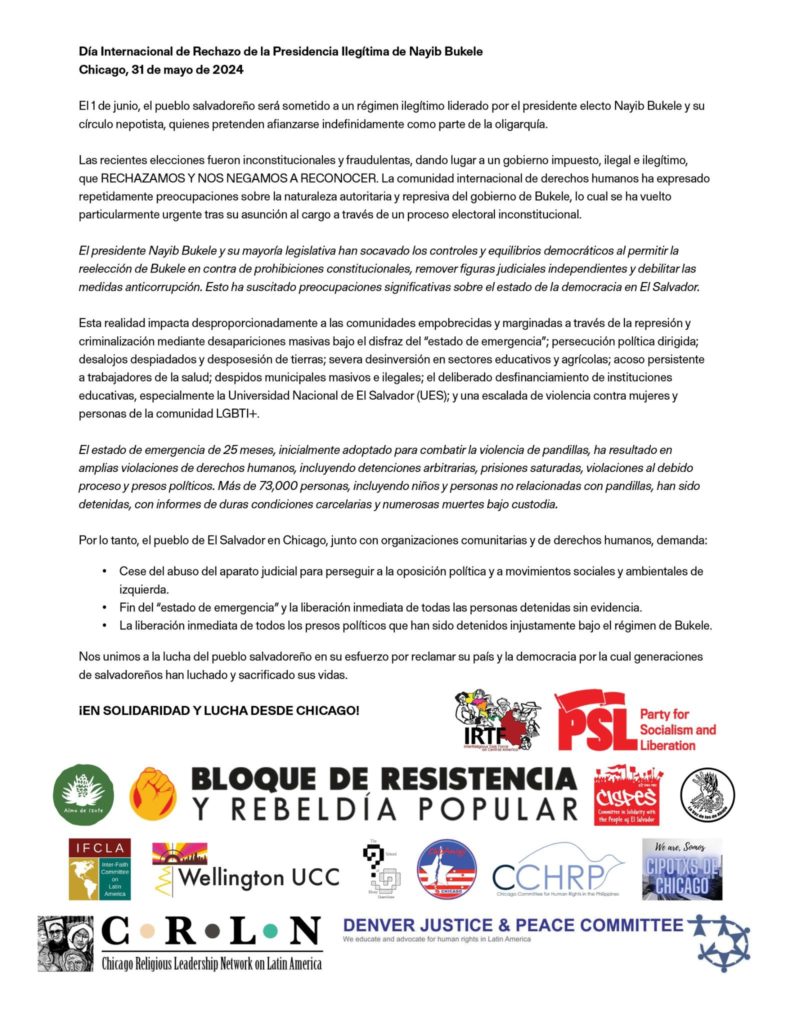(Texto en el idioma español después del texto en ingles.)
Urgent Call to End the Criminalization of Rigoberto Juárez and Ermitaño López, Indigenous Ancestral Authorities and Human Rights Defenders of Guatemala
October, 2024
Human rights organizations and advocates, urgently call for an immediate end to the unjust criminalization of Rigoberto Juárez Mateo and Bernardo Ermitaño López, human rights defenders and respected ancestral authorities of the Maya Q’anjob’al, Chuj, Akateko, Poptí and Mestizo people of Huehuetenango, Guatemala.
Juárez and López have dedicated their lives to the protection of Indigenous lands and the rights of their people, standing in opposition to harmful foreign-funded hydroelectric projects that threaten their environment and well-being. Despite their long-standing commitment to justice, these leaders now face renewed criminal charges that represent a grave abuse of the legal system. These charges come as a result of their legitimate efforts to mediate conflicts and advocate for their communities. The two leaders have become emblematic of the larger struggle faced by Indigenous communities in their fight to protect their land, culture, and rights in the face of powerful extractive industries.
However, despite their peaceful resistance and their commitment to dialogue and justice, both Juárez and López have become targets of legal persecution by powerful interests seeking to suppress opposition. Their criminalization is not only a deliberate misuse of the legal system but also an attempt to silence Indigenous voices and movements that challenge the government of Guatemalan’s alignment with corporate and financial interests.
The roots of this injustice can be traced back to 2009 when tensions in the region began to escalate due to the imposition of large-scale development projects without the consent of the local Indigenous communities. In response, Juárez and López stepped in to mediate between the communities and external forces, advocating for the rights of their people and calling for a halt to these destructive projects. Instead of being recognized for their legitimate efforts to protect their ancestral lands, they were met with retaliation, and eventually, fabricated charges were brought against them.
In 2016, after enduring 486 days of unjust imprisonment, both leaders were acquitted by Judge Yassmín Barrios, whose ruling highlighted the lack of evidence and the political motivations behind their detention. However, despite this victory, the Public Ministry’s relentless pursuit of an appeal has led to renewed accusations and devastating prison sentences—7 years for Juárez and a staggering 23 years for López. These sentences represent a gross miscarriage of justice, deeply rooted in racial discrimination and the Guatemalan state’s long history of criminalizing Indigenous leaders who dare to resist corporate exploitation.
The case of Rigoberto Juárez Mateo and Bernardo Ermitaño López is part of a broader, deeply troubling pattern of systemic abuses against Indigenous leaders in Guatemala. Across the country, defenders of land and human rights are facing increasing levels of intimidation, violence, and judicial harassment. The weaponization of the legal system against Indigenous leaders like Juárez and López is a clear violation of their fundamental rights and an alarming sign of the shrinking space for civil society and Indigenous resistance. We stand in solidarity with these courageous leaders and call upon the international community, human rights organizations, and all those who believe in justice and Indigenous rights to join us in demanding an end to this wrongful criminalization and to support Rigoberto Juárez Mateo and Bernardo Ermitaño López in their struggle for justice.
Call to Action
- Immediate Reversal of the Sentences: We urge the Constitutional Court of Guatemala to promptly grant the amparo filed by Rigoberto Juárez Mateo and Bernardo Ermitaño López and to overturn the unjust sentences that threaten their freedom and safety.
- End to Criminalization of Indigenous Defenders: We call for an immediate end of the systematic criminalization of Indigenous leaders exercising their right to defend their lands and cultures. The government of Guatemala must uphold its obligations under international human rights law, including the United Nations Declaration on the Rights of Indigenous Peoples (UNDRIP).
- International Pressure on the Guatemalan Government: We urge international human rights organizations, governments, and multilateral institutions to increase pressure on Guatemala to halt its persecution of Indigenous leaders. These defenders must be protected and supported, not punished, for their critical role in safeguarding human rights and the environment.
- Accountability for Corporations and Financiers: We demand accountability from corporations and financial institutions, including the Inter-American Development Bank, that have financed projects leading to the displacement and criminalization of Indigenous communities. These entities must be held responsible for their involvement in human rights violations and should withdraw support from projects that violate Indigenous rights.
- Protection for Human Rights Defenders: We call on the Guatemalan government to enhance protections for human rights defenders, ensuring that leaders like Rigoberto Juárez Mateo can continue their vital work without fear of persecution. The state must implement effective measures to prevent further criminalization and violence against defenders, in line with its international legal obligations.
//
Llamado Urgente para Poner Fin a la Criminalización de Rigoberto Juárez y Ermitaño López, Autoridades Ancestrales Indígenas y Defensores de los Derechos Humanos de Guatemala
Octubre, 2024
Organizaciones de derechos humanos y persona defensoras de derechos humanos urgimos el fin inmediato de la injusta criminalización de Rigoberto Juárez Mateo y Bernardo Ermitaño López, defensores de los derechos humanos y respetadas autoridades ancestrales de los pueblos Maya Q’anjob’al, Chuj, Akateko, Poptí y Mestizo de Huehuetenango, Guatemala.
Juárez y López han dedicado sus vidas a la protección de las tierras indígenas y la defensa de los derechos de sus pueblos, oponiéndose a proyectos hidroeléctricos financiados por inversiones extranjeras que amenazan su entorno y bienestar. A pesar de su compromiso con la justicia, estos líderes enfrentan ahora nuevos cargos criminales que representan un grave abuso del sistema legal. Estas acusaciones son el resultado de sus esfuerzos legítimos por mediar en los conflictos y abogar por sus comunidades. Ambos se han convertido en símbolos de la lucha más amplia de las comunidades indígenas por proteger su tierra, cultura y derechos frente a las poderosas industrias extractivas.
Sin embargo, a pesar de su resistencia pacífica y su compromiso con el diálogo y la justicia, tanto Juárez como López se han convertido en blancos de la persecución legal por parte de intereses poderosos que buscan reprimir la oposición. Su criminalización no solo es un uso indebido deliberado del sistema legal, sino también un intento de silenciar a las voces y movimientos indígenas que desafían la alineación del gobierno de Guatemala con los intereses corporativos y financieros.
Las raíces de esta injusticia se dan en el año 2009, cuando las tensiones en la región comenzaron a aumentar debido a la imposición de proyectos de desarrollo a gran escala sin el consentimiento de las comunidades indígenas locales. En respuesta, Juárez y López intervinieron para mediar entre las comunidades y las fuerzas externas, abogando por los derechos de su pueblo y llamando a detener estos proyectos destructivos. En lugar de ser reconocidos por sus esfuerzos legítimos para proteger sus tierras ancestrales, fueron objeto de represalias y finalmente se les imputaron cargos falsos.
En 2016, tras soportar 486 días de prisión injusta, ambos líderes fueron absueltos por la jueza Yassmín Barrios, cuya sentencia destacó la falta de pruebas y las motivaciones políticas detrás de su detención. Sin embargo, a pesar de esta victoria, la implacable persecución de la Fiscalía ha resultado en nuevas acusaciones y sentencias devastadoras de prisión: 7 años para Juárez y de manera asombrosa, 23 años para López. Estas sentencias representan una grave injusticia, profundamente enraizada en la discriminación racial y la larga historia del Estado de Guatemala para criminalizar a líderes indígenas que se atreven a resistir la explotación corporativa.
El caso de Rigoberto Juárez Mateo y Bernardo Ermitaño López forma parte de un patrón más amplio y profundamente preocupante de abusos sistemáticos contra líderes indígenas en Guatemala. En todo el país, los defensores de la tierra y los derechos humanos enfrentan niveles crecientes de intimidación, violencia y acoso judicial. La instrumentalización del sistema legal contra líderes indígenas como Juárez y López es una violación clara de sus derechos fundamentales y una señal alarmante del reducido espacio para la sociedad civil y la resistencia indígena.
Nos solidarizamos con estos valientes líderes y hacemos un llamado a la comunidad internacional, a las organizaciones de derechos humanos y a todos aquellos que creen en la justicia y los derechos de los pueblos indígenas para que se unan a exigir el fin a esta criminalización injusta y que apoyen a Rigoberto Juárez Mateo y Bernardo Ermitaño López en su lucha por la justicia.
Llamado a la Acción
- Revocación Inmediata de las Sentencias: Instamos a la Corte Constitucional de Guatemala a conceder prontamente el amparo presentado por Rigoberto Juárez Mateo y Bernardo Ermitaño López, y a revocar las sentencias injustas que amenazan su libertad y seguridad.
- Fin a la Criminalización de Defensores Indígenas: Exigimos el fin inmediato de la criminalización sistemática de los líderes indígenas que ejercen su derecho a defender sus tierras y culturas. El gobierno de Guatemala debe cumplir con sus obligaciones bajo el derecho internacional de los derechos humanos, incluida la Declaración de las Naciones Unidas sobre los Derechos de los Pueblos Indígenas (DNUDPI).
- Presión Internacional sobre el Gobierno de Guatemala: Instamos a las organizaciones internacionales de derechos humanos, a los gobiernos y a las instituciones multilaterales a aumentar la presión sobre Guatemala para que detenga la persecución de líderes indígenas. Estos defensores deben ser protegidos y apoyados, no castigados, por su papel crucial en la protección de los derechos humanos y el medio ambiente.
- Rendición de Cuentas para Corporaciones y Financieros: Exigimos responsabilidad por parte de las corporaciones e instituciones financieras, incluido el Banco Interamericano de Desarrollo, que han financiado proyectos que han llevado al desplazamiento y criminalización de las comunidades indígenas. Estas entidades deben ser responsables de su participación en violaciones de derechos humanos y deben retirar su apoyo a proyectos que violen los derechos indígenas.
- Protección para los Defensores de Derechos Humanos: Hacemos un llamado al gobierno de Guatemala para que fortalezca la protección de los defensores de derechos humanos, asegurando que líderes como Rigoberto Juárez Mateo y Bernardo Ermitaño López puedan continuar su labor vital sin temor a la persecución. El Estado debe implementar medidas efectivas para prevenir la criminalización y la violencia contra los defensores, de conformidad con sus obligaciones legales internacionales.
![]() DATE: Sunday, November 10th
DATE: Sunday, November 10th![]() TIME: 11:45 AM
TIME: 11:45 AM![]() LOCATION: Lake Street Church, 607 Lake St., Evanston, IL 60201
LOCATION: Lake Street Church, 607 Lake St., Evanston, IL 60201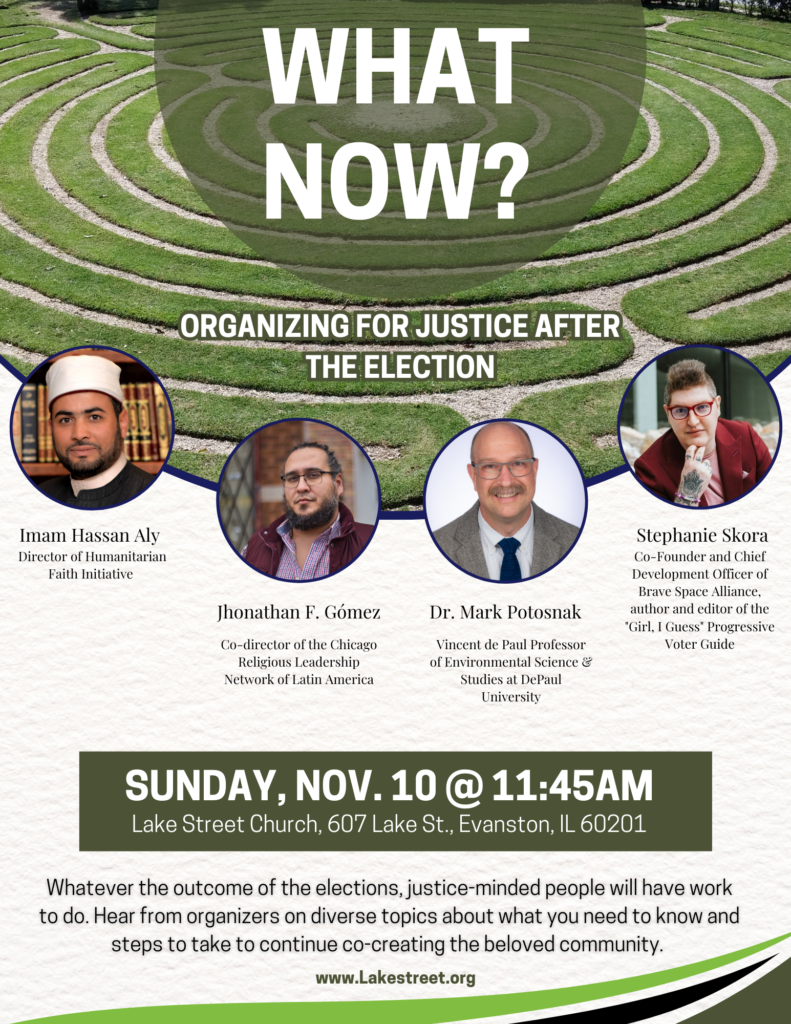

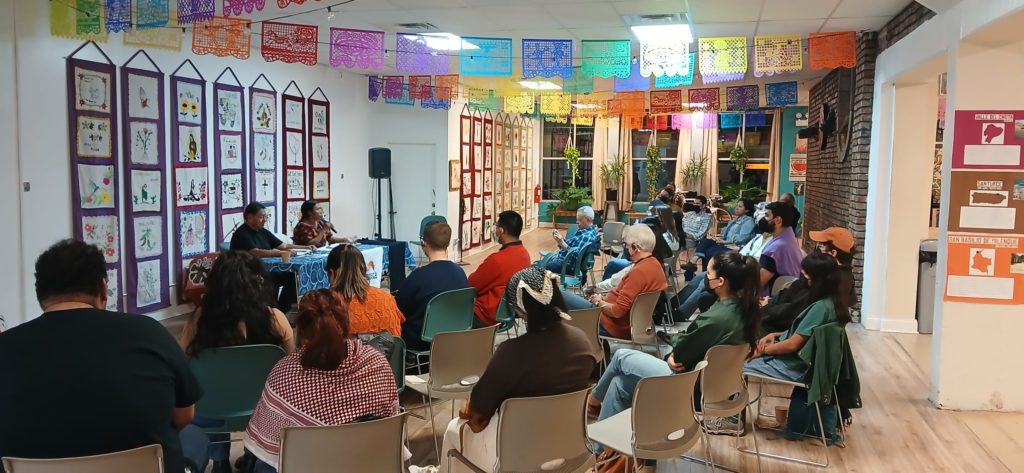
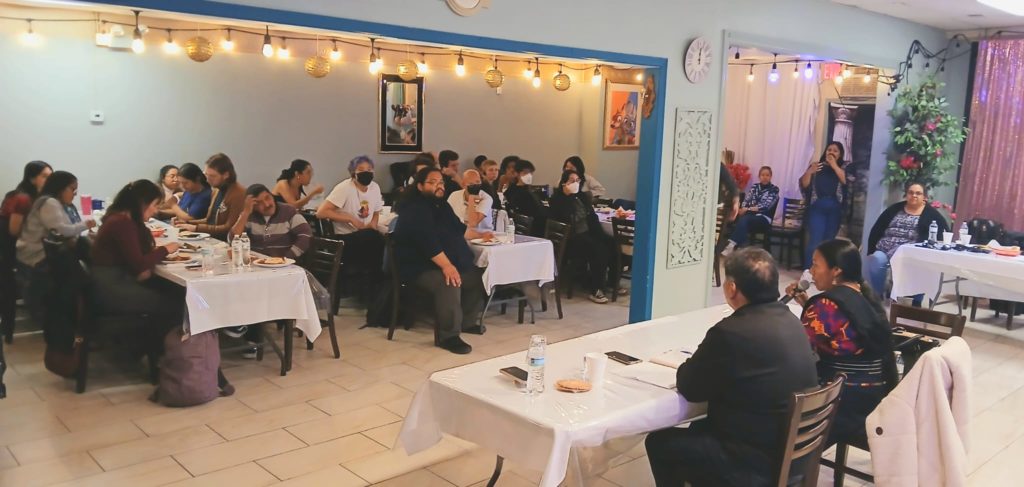
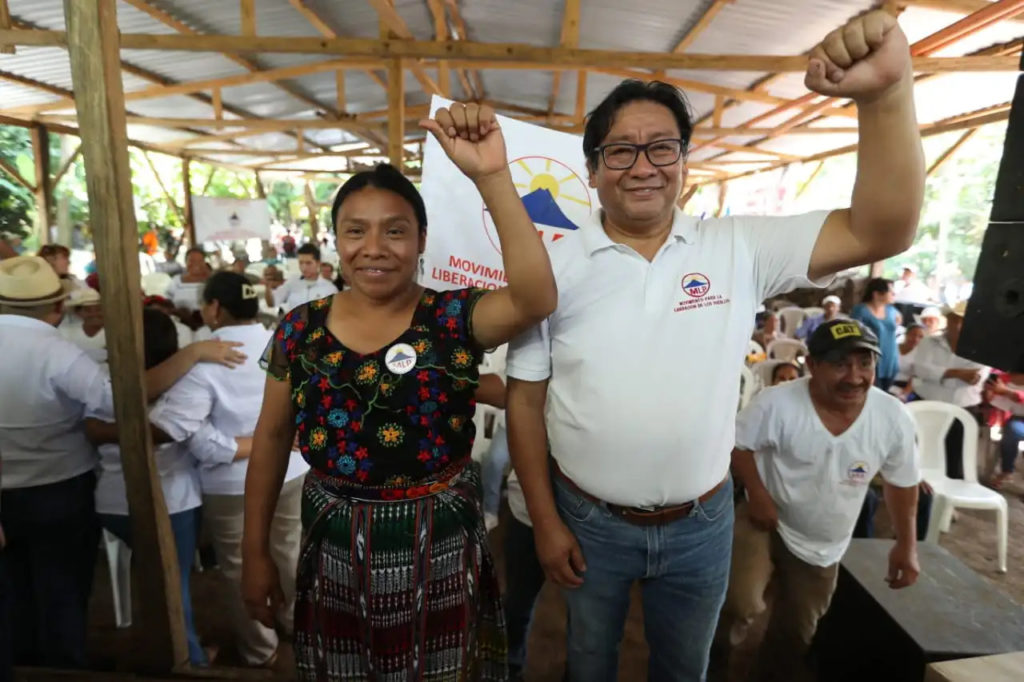
 Date: Tuesday, October 22
Date: Tuesday, October 22 Time: 6:00 – 9:00 PM
Time: 6:00 – 9:00 PM Location: 8th Street Casa De Cultura
Location: 8th Street Casa De Cultura